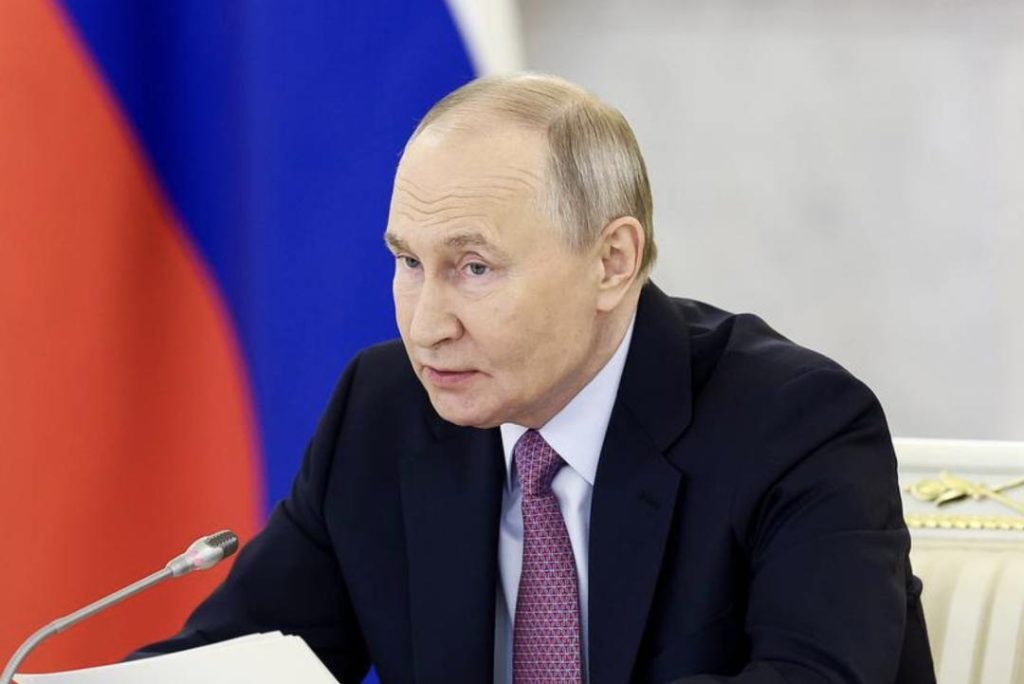
Russia & US in talks on cooperation in Arctic, Alaska: Putin
In a recent development that could have significant implications for the global energy landscape, Russian President Vladimir Putin has announced that Russia and the United States are engaged in discussions regarding potential cooperation in the Arctic region and Alaska. The talks, which were revealed by Putin during a press conference, aim to explore the possibility of joint ventures and technology sharing between the two nations.
According to Putin, Russia possesses unique technologies that are of great interest to its international partners, including the United States. “The technologies that we possess, today no one but us possesses,” he stated, highlighting the country’s expertise in the Arctic region. This expertise, Putin noted, could be leveraged to facilitate cooperation in the region.
The announcement comes as no surprise, given the growing importance of the Arctic region in the global energy landscape. As climate change continues to reshape the region, access to its natural resources has become a key priority for many nations. Russia, in particular, has been actively exploring the region’s vast oil and gas reserves, with major projects such as the Yamal LNG plant and the Arctic LNG-2 project already underway.
Novatek, Russia’s largest liquefied natural gas (LNG) producer, is already operating in the Arctic, with several major projects under its belt. The company’s experience in the region, combined with its expertise in LNG production, makes it an attractive partner for any potential joint ventures in the region.
The United States, meanwhile, has its own interests in the Arctic region. Alaska, in particular, is home to significant oil and gas reserves, as well as vast wilderness areas and untapped natural resources. The state’s energy industry has long been a key driver of its economy, and any potential cooperation with Russia could have significant benefits for both nations.
So what exactly is being discussed between Russia and the United States? While details are scarce, it’s likely that the two nations are exploring a range of possibilities, from joint energy projects to technology sharing and infrastructure development.
One potential area of cooperation could be the development of new energy infrastructure in the region. Both Russia and the United States have significant experience in building and operating energy infrastructure, including pipelines, refineries, and LNG plants. By working together, the two nations could leverage their expertise to develop new projects that benefit both countries.
Another area of potential cooperation could be in the field of technology. Russia’s Arctic region is home to some of the most challenging environmental conditions on the planet, with temperatures often dropping to -50°C in the winter. Developing technologies that can withstand these conditions is a significant challenge, and any potential cooperation between the two nations could help to accelerate the development of new technologies.
Finally, there’s the potential for cooperation on environmental issues. The Arctic region is particularly vulnerable to climate change, with rising temperatures and melting ice caps posing significant threats to the region’s ecosystem. By working together, Russia and the United States could develop new technologies and strategies for mitigating the impacts of climate change in the region.
While the details of the talks between Russia and the United States remain scarce, it’s clear that any potential cooperation in the Arctic region could have significant benefits for both nations. By leveraging their expertise and resources, the two nations could help to accelerate the development of new energy projects, technologies, and infrastructure in the region.
As the world continues to grapple with the challenges posed by climate change, the potential for cooperation between Russia and the United States in the Arctic region could not be more timely. By working together, the two nations can help to ensure a sustainable and prosperous future for the region, and for the world.



